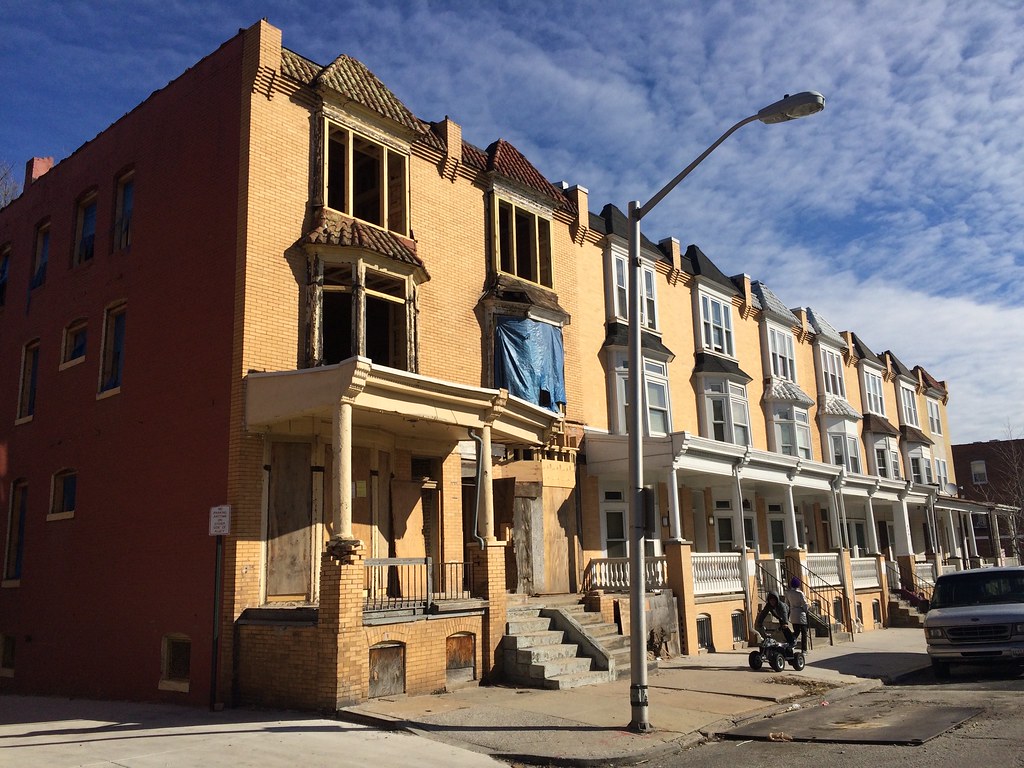Vacant buildings can cause real worries and serious problems for Baltimore residents and property owners. For example:
- If you rent an attached rowhouse with a vacant house next door, you may worry about pests (like mice or rats); structural problems with your roof or party wall; and an increased risk of fire or property crime.
- If you own a home with a vacant house on your block, you may worry about how nearby vacant buildings could increase your heating or insurance costs; decrease the value of your home; and make it more difficult for you to sell your home if you choose to move in the future.
- If you lead a community organization, you may worry about how vacant properties contribute to public safety risks; make your community less attractive; or how any reductions in the city’s property tax income might affect public services like parks or sanitation.
None of these problems have easy or simple solutions. And in some communities vacant buildings are such a big problem that you might feel overwhelmed.
You know you can’t solve this issue all on your own. But if you work together with your neighbors, elected officials, city employees, local nonprofits, and developers, you can start solving the problem of vacant buildings in your neighborhood. For example:
- Neighborhood associations can take legal action to force a negligent property owner to secure a vacant building or clean up a yard overrun by weeds and debris.
- Private developers can repair vacant buildings and put them back into use as homes or apartments.
- Baltimore City can tear down a block of vacant buildings and volunteers can adopt the lot as community open space.
- Local nonprofits can offer financial counseling to struggling neighbors and prevent abandonment by helping residents stay in their homes.

If you care about vacant buildings in your neighborhood, you probably know that they are not the only problem. You can even see vacant buildings as the symptom of even bigger problems: inadequate public transportation, limited access to jobs, economic inequality, and segregation. When you talk about vacant buildings with your neighbors, you may need to talk about these bigger local and national issues, including:
- Economic development and opportunity
- Suburban growth and transportation
- Racial segregation and discrimination
Understanding how these issues affect you and your neighborhood can help you start conversations about vacant buildings and build consensus around possible long-term solutions.